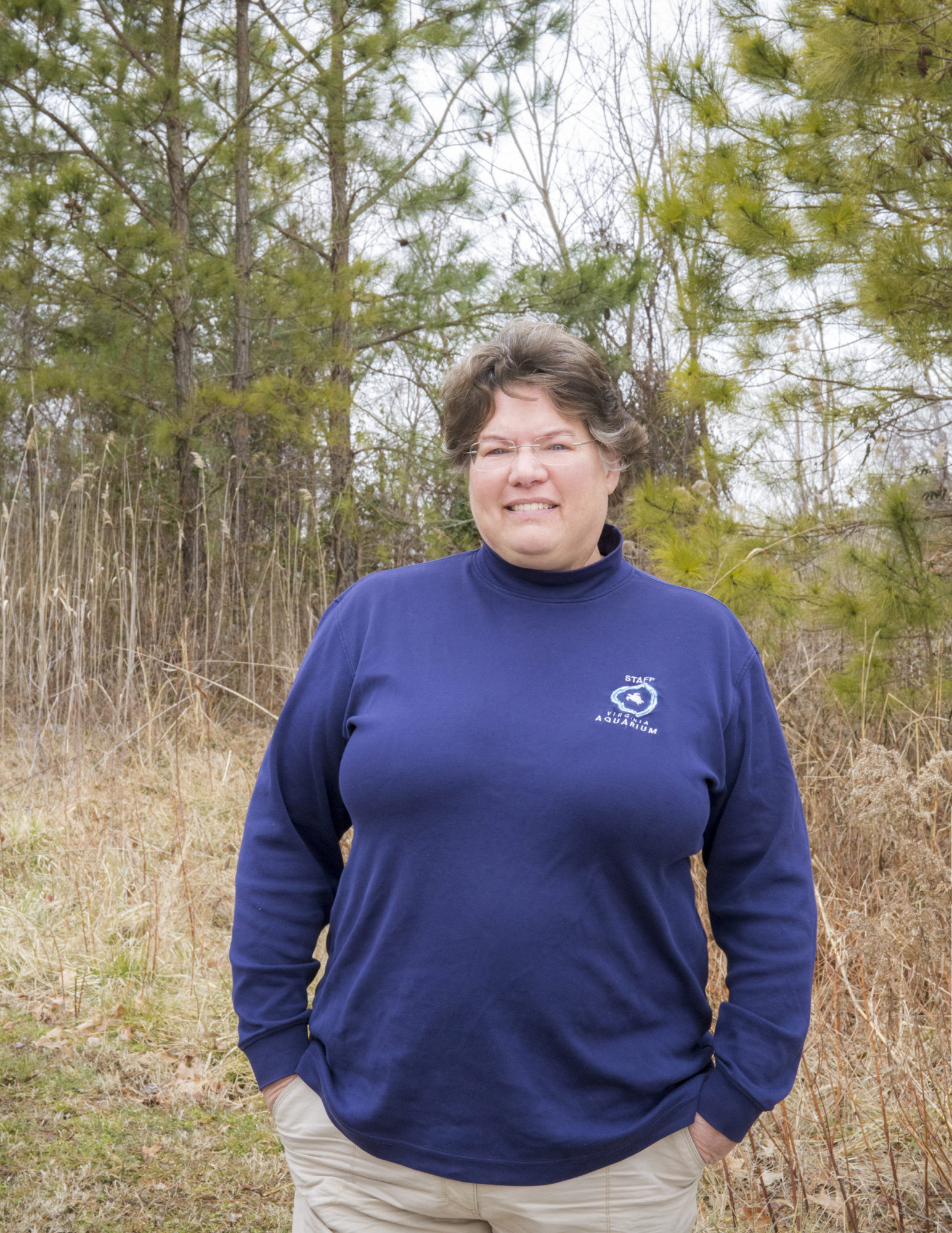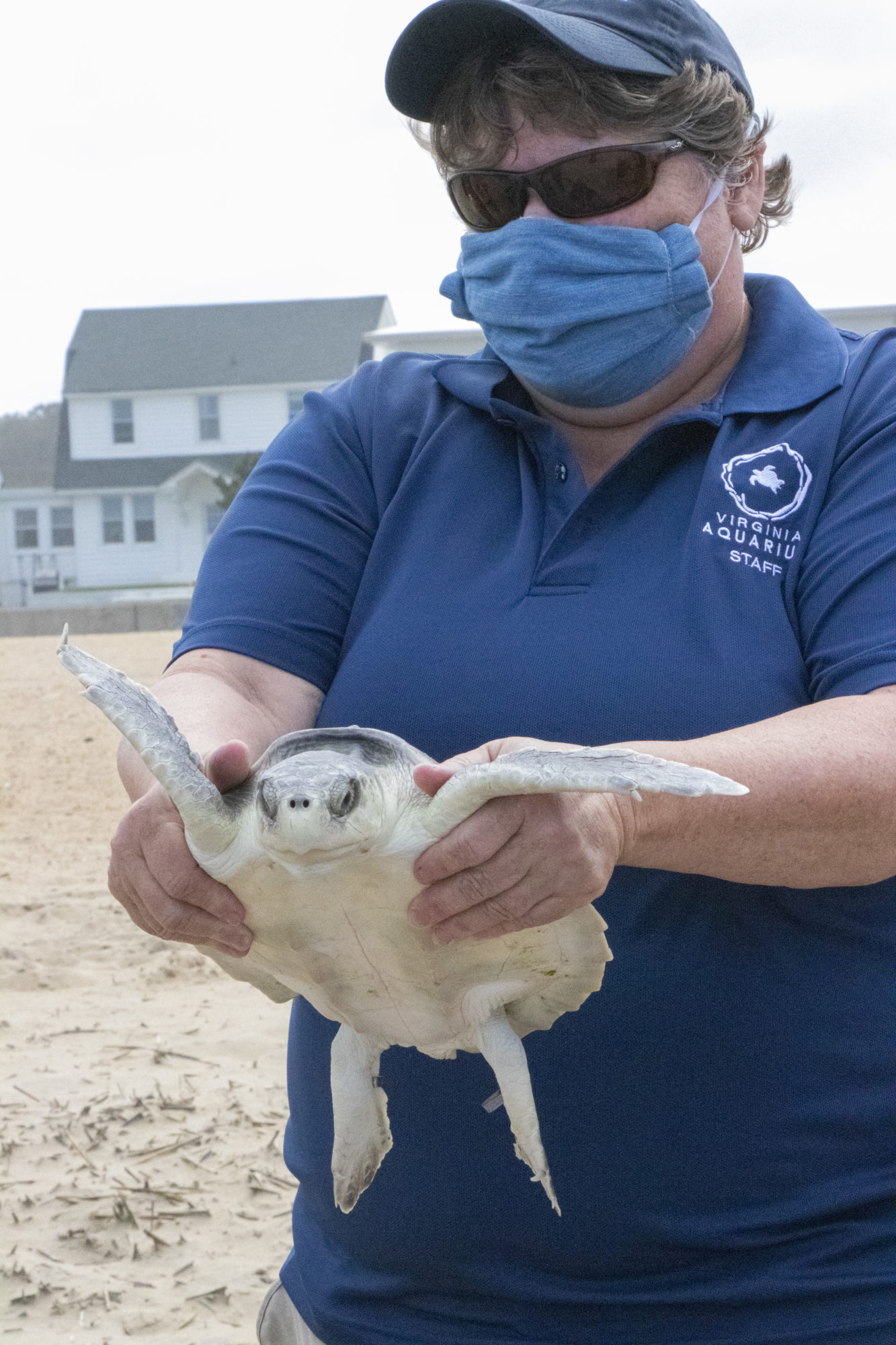
Susan Barco was in her early 30s and in her early days as a marine biologist working with sea turtles and dolphins off Virginia Beach when I interviewed her in 1997 for the Virginian-Pilot.
The largest population of dolphins in Virginia is around Cape Henry. At the time Susan already had logged thousands of hours observing them and other critters off our coast.
“No scientist has ever been in a position to oversee so closely the life of these animals,” Mark Swingle said then. He was director of the Stranding Response Program at the Virginia Marine Science Museum, now the Virginia Aquarium.
I was bold enough to write that “Nobody anywhere knows bottlenose dolphins in these parts better than Susan Barco.”
Susan never left her front row seat with the dolphins and sea turtles. She retired as a senior scientist this month from the Virginia Aquarium, still the expert on local marine mammals and so much more.

She has received her Master’s and Phd and along the way and has helped the Aquarium’s Stranding Response Program achieve “national recognition,” Mark said upon her retirement. In addition, he said, she has served on national advisory groups and research projects with the goal of learning more and giving more protection to marine animals.
“Susan has been a shining example to many a young professional, navigating the challenges between academic achievement, field biology and program administration,” Mark added.
Marine biology was in Susan’s blood when she was a youngster, growing up here on the river and Bay. She volunteered at age 18 for the aquarium when it was still in the planning stages.
When she graduated from William and Mary with a degree in marine biology, she went to work right away at the aquarium, first in education and then behind the scenes with the animals.
The huge dolphin die-off here in the late 1980s led to the founding of the museum’s Stranding Response Program and sent Susan back to school. She got her masters in “The Ecology of Bottlenose Dolphin in Virginia Beach” from James Madison University.
From there, Susan spent time in Virginia Beach both with the stranding program and as a researcher with UNC at Wilmington. She did beach surveys of marine mammal interactions with commercial fisheries and with the aquarium’s dolphin photo ID project.
Susan received her doctorate and came back to the aquarium full time and has been with the stranding program ever since. She retired last week after more than three decades with the aquarium and one month after Mark Swingle retired.
When I interviewed Susan back in 1997, she told me that dolphins were her livelihood and her passion. “I can’t imagine doing anything else,” she said, “as long as I can make enough money to survive.”
And survive, she did!
The aquarium is losing another piece of the heart of the stranding program. The environmental community and that includes the dolphins and sea turtles is losing a great friend.
The full interview with Susan Barco that I wrote in 1997, can be found at: https://scholar.lib.vt.edu/VA-news/VA-Pilot/issues/1997/vp970729/07290013.htm